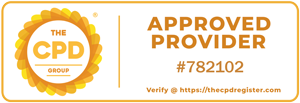Carly Moulang | Associate Professor, Director of Engagement & Impact Thriving Minds Program Director
Monash University

Dr Carly Moulang is an Associate Professor in Accounting and Executive Education at Monash University with over 24 years experience in Higher Education. She is currently the Director of Engagement and Impact in the Department of Accounting and Thriving Mind lead and a MBA chief examiner in Executive Education. She holds a Ph.D. in management accounting and a Graduate Diploma in Psychology from Monash University. She is a member of CPA Australia and Chartered Accountants Association of Australia and New Zealand (CA ANZ). Carly’s research agenda incorporates gender and psychological-based business research. Her multi-disciplinary research has included topics such as whistleblowing, creativity, performance management, environmental management accounting, wellbeing and psychological capital, psychological safety, gender, superannuation research and decision-making. Carly’s research has won several awards including the American Accounting Association best paper award for her paper “Psychological Resources that Help Women Accountants Flourish: Exploring the Relationships between Organisational Practices, Psychological Resources, and Organizational Outcomes” with Alessandro Ghio. Her research has been widely disseminated via television, documentaries, podcasts, radio interviews and news articles. Her work broadly contributes towards achieving better retirement, gender, performance and mental-health outcomes for women. She is also an award-winning undergraduate and postgraduate educator having recently been awarded a global CIMA Teaching Excellence Award: Global Distinguished Excellence Award (Most influential lecturer), and was winner of the 2023 MBS Dean's Award for PRME Education Excellence.
Appearances:
Day 1 @ 12:45
Creating psychological safety in the workplace
* What is psychological safety?* Why is it important?* What are key insights from the research?* What is NOT psychological safety?* How does psychological safety lead to higher levels of learning and performance?* What are some practical ways that improve psychological safety at work?
Contact us
Sponsorship Enquiries
Arron.Penman@terrapinn.com
Speaking Enquiries:
Elizabeth.Paterson@terrapinn.com
Marketing Enquiries:
Rita.Nehme@terrapinn.com
Start-Up Enquiries
Aryan.Panjiar@terrapinn.com



